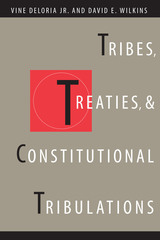
Whether people want to play games and download music, engage in social networking and professional collaboration, or view pornography and incite terror, the Internet provides myriad opportunities for people who share common interests to find each other. The contributors to this book argue that these self-selected online groups are best understood as tribes, with many of the same ramifications, both positive and negative, that tribalism has in the non-cyber world.
In Electronic Tribes, the authors of sixteen competitively selected essays provide an up-to-the-minute look at the social uses and occasional abuses of online communication in the new media era. They explore many current Internet subcultures, including MySpace.com, craftster.org, massively multiplayer online role-playing games (MMORPGs) such as World of Warcraft, music downloading, white supremacist and other counterculture groups, and Nigerian e-mail scams. Their research raises compelling questions and some remarkable answers about the real-life social consequences of participating in electronic tribes. Collectively, the contributors to this book capture a profound shift in the way people connect, as communities formed by geographical proximity are giving way to communities—both online and offline—formed around ideas.

We began as savages, and savagery has served us well—it got us where we are. But how do our tribal impulses, still in place and in play, fit in the highly complex, civilized world we inhabit today? This question, raised by thinkers from Freud to Lévi-Strauss, is fully explored in this book by the acclaimed anthropologist Robin Fox. It takes up what he sees as the main—and urgent—task of evolutionary science: not so much to explain what we do, as to explain what we do at our peril.
Ranging from incest and arranged marriage to poetry and myth to human rights and pop icons, Fox sets out to show how a variety of human behaviors reveal traces of their tribal roots, and how this evolutionary past limits our capacity for action. Among the questions he raises: How real is our notion of time? Is there a human “right” to vengeance? Are we democratic by nature? Are cultural studies and fascism cousins under the skin? Is evolutionary history coming to an end—or just getting more interesting? In his famously informative and entertaining fashion, drawing links from Volkswagens to Bartók to Woody Guthrie, from Swinburne to Seinfeld, Fox traces our ongoing struggle to maintain open societies in the face of profoundly tribal human needs—needs which, paradoxically, hold the key to our survival.

2008 — British-Kuwait Friendship Prize in Middle Eastern Studies – British Society for Middle Eastern Studies
A Tribal Order describes the politico-legal system of Jabal Razih, a remote massif in northern Yemen inhabited by farmers and traders. Contrary to the popular image of Middle Eastern tribes as warlike, lawless, and invariably opposed to states, the tribes of Razih have stable structures of governance and elaborate laws and procedures for maintaining order and resolving conflicts with a minimum of physical violence. Razihi leaders also historically cooperated with states, provided the latter respected their customs, ideals, and interests. Weir considers this system in the context of the rugged environment and productive agricultural economy of Razih, and of centuries of continuous rule by Zaydi Muslim regimes and (latterly) the republican governments of Yemen.
The book is based on Weir's extended anthropological fieldwork on Jabal Razih, and on her detailed study of hundreds of handwritten contracts and treaties among and between the tribes and rulers of Razih. These documents provide a fascinating insight into tribal politics and law, as well as state-tribe relations, from the early seventeenth to the late twentieth century. A Tribal Order is also enriched by case histories that vividly illuminate tribal practices. Overall, this unusually wide-ranging work provides an accessible account of a remarkable Arabian society through time.


"Federal Indian law . . . is a loosely related collection of past and present acts of Congress, treaties and agreements, executive orders, administrative rulings, and judicial opinions, connected only by the fact that law in some form has been applied haphazardly to American Indians over the course of several centuries. . . . Indians in their tribal relation and Indian tribes in their relation to the federal government hang suspended in a legal wonderland."
In this book, two prominent scholars of American Indian law and politics undertake a full historical examination of the relationship between Indians and the United States Constitution that explains the present state of confusion and inconsistent application in U.S. Indian law. The authors examine all sections of the Constitution that explicitly and implicitly apply to Indians and discuss how they have been interpreted and applied from the early republic up to the present. They convincingly argue that the Constitution does not provide any legal rights for American Indians and that the treaty-making process should govern relations between Indian nations and the federal government.
READERS
Browse our collection.
PUBLISHERS
See BiblioVault's publisher services.
STUDENT SERVICES
Files for college accessibility offices.
UChicago Accessibility Resources
home | accessibility | search | about | contact us
BiblioVault ® 2001 - 2024
The University of Chicago Press









